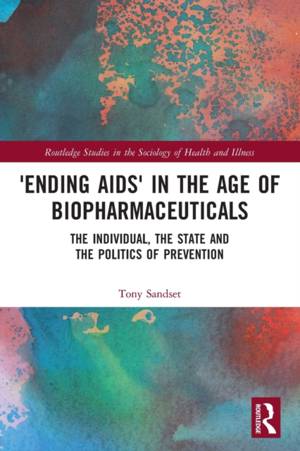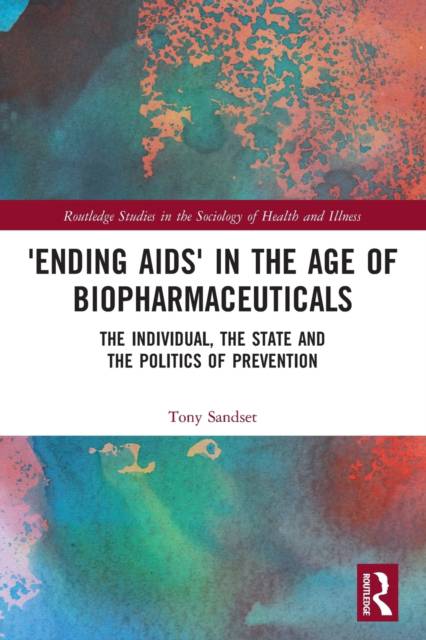
- Afhalen na 1 uur in een winkel met voorraad
- Gratis thuislevering in België vanaf € 30
- Ruim aanbod met 7 miljoen producten
- Afhalen na 1 uur in een winkel met voorraad
- Gratis thuislevering in België vanaf € 30
- Ruim aanbod met 7 miljoen producten
'Ending Aids' in the Age of Biopharmaceuticals
The Individual, the State and the Politics of Prevention
Tony SandsetOmschrijving
This book considers the change in rhetoric surrounding the treatment of AIDS from one of crisis to that of 'ending AIDS'. Exploring what it means to 'end AIDS' and how responsibility is framed in this new discourse, the author considers the tensions generated between the individual and the state in terms of notions such as risk, responsibility and prevention. Based on analyses public health promotions in the UK and the US, HIV prevention science and engaging with the work of Foucault, this volume argues that the discourse of 'ending AIDS' implies a tension-filled space in which global principles and values may clash with localised needs, values and concerns; in which evidence-based policies strive for hegemony over local, tacit and communal regimes of knowledge; and in which desires compete with national and international ideas about what is best for the individual in the name of 'ending AIDS' writ large. As such, it will appeal to scholars of sociology and media studies with interests in the sociology of medicine and health, medical communication and health policy.
Specificaties
Betrokkenen
- Auteur(s):
- Uitgeverij:
Inhoud
- Aantal bladzijden:
- 196
- Taal:
- Engels
- Reeks:
Eigenschappen
- Productcode (EAN):
- 9780367529130
- Verschijningsdatum:
- 29/04/2022
- Uitvoering:
- Paperback
- Formaat:
- Trade paperback (VS)
- Afmetingen:
- 156 mm x 234 mm
- Gewicht:
- 281 g

Alleen bij Standaard Boekhandel
Beoordelingen
We publiceren alleen reviews die voldoen aan de voorwaarden voor reviews. Bekijk onze voorwaarden voor reviews.











